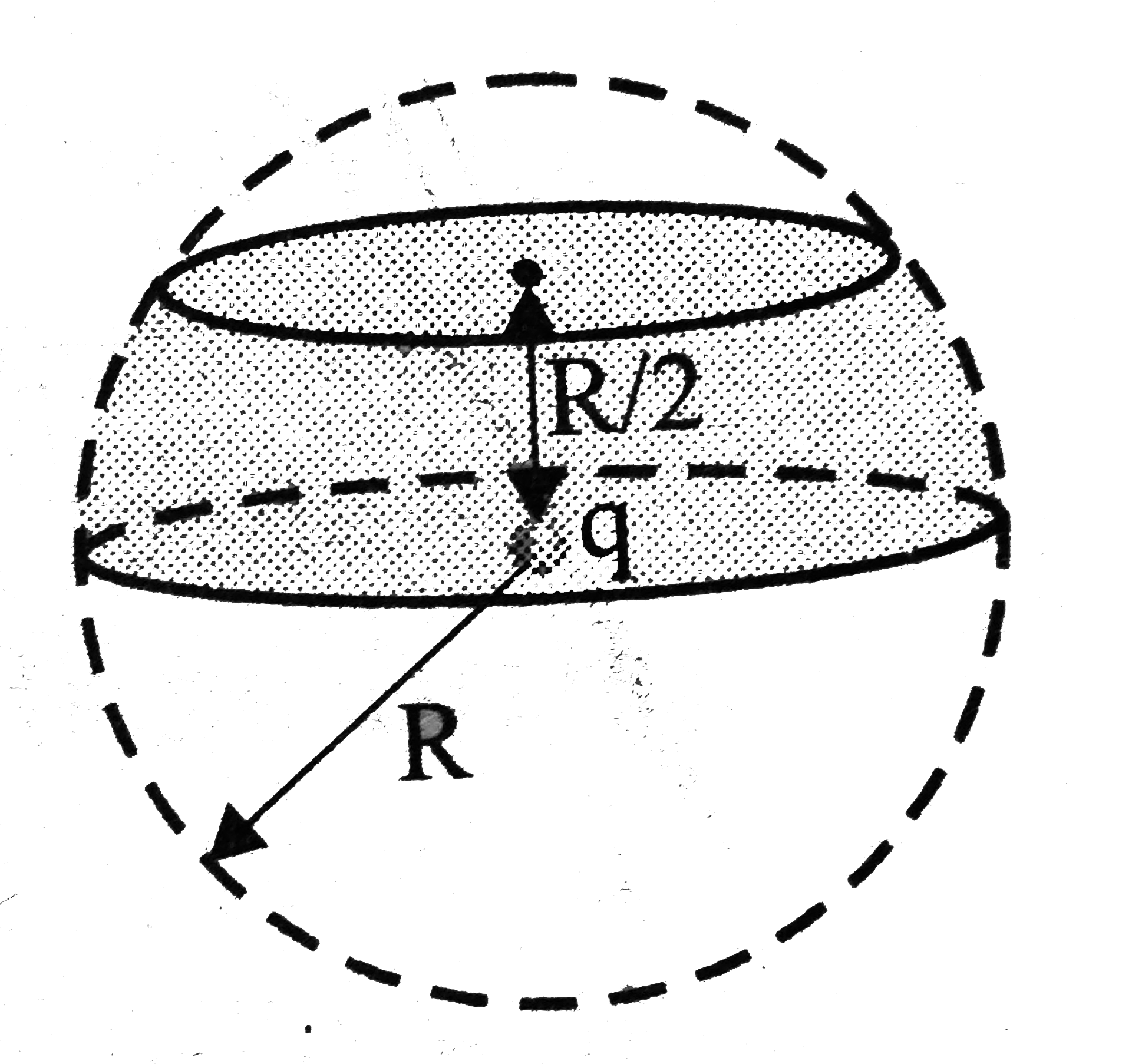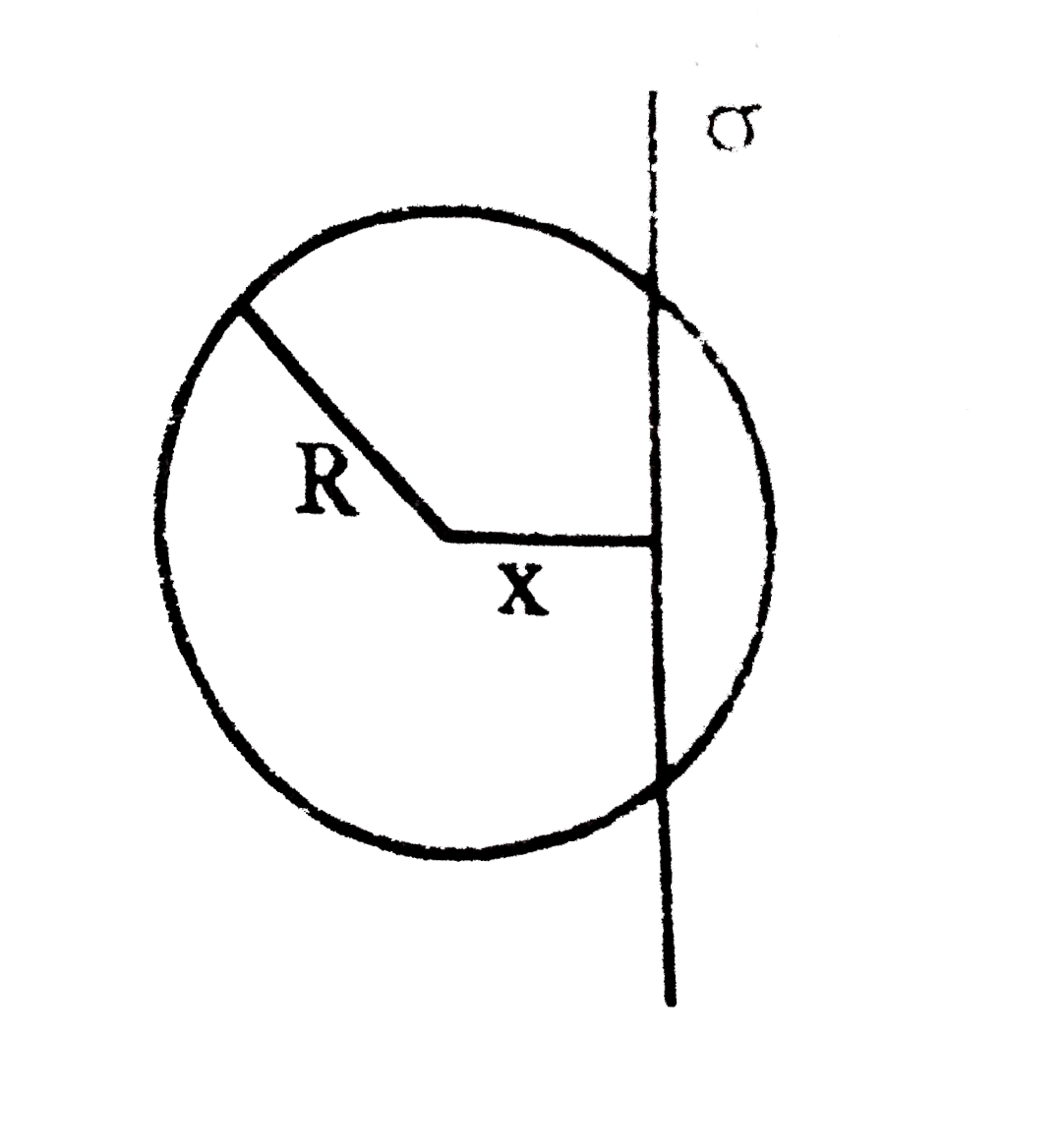A point charge causes an electric flux of −1.0×103Nm2/C to pass through a spherical Gaussian surface of 10.0 cm radius centred on the charge. (a) If the radius of the Gaussian surface were doubled, how much flux would pass through the surface ? (b) What is the is the value of the point charge ?
(a) Electric flux, ϕ=−1.0×103Nm2/C
Radius of the Gaussian surface,
r= 10.0 cm
Electric flux piercing out through a surface depends on the net charge enclosed inside a body. It does not depend on the size of the body. If the radius of the Gaussian surface is doubled, then the flux passing through the surface remains the same i.e.,
−103Nm2/C.
(b) Electric flux is given by the relation,
ϕ=q∈0
Where,
q = Net charge enclosed by the spherical surface
∈0 = Permittivity of free space = 8.854×10−12N−1C2m−2
∴q=ϕ∈0
=−1.0×103×8.854×10−12
=−8.854×109C
=−8.854nC ltBrgt Therefore, the value of the point charge is −8.854 nC.
Topper's Solved these Questions
- BOOK - NCERT ENGLISHCHAPTER - ELECTRIC CHARGES AND FIELDSEXERCISE - Exercise34videos
ELECTRIC CHARGES AND FIELDS
- BOOK - NCERT ENGLISHCHAPTER - DUAL NATURE OF RADIATION AND MATTEREXERCISE - All Questions32videos
DUAL NATURE OF RADIATION AND MATTER
- BOOK - NCERT ENGLISHCHAPTER - ELECTROMAGNETIC INDUCTIONEXERCISE - Exercise17videos
ELECTROMAGNETIC INDUCTION
Similar Questions
A charge of 8.85C is placed at the centre of a spherical Guassian surface of radius 5cm. The electric flux through the surface is
View SolutionA spherical Gaussian surface surrounds a point charge q. If the charge is moved to another location inside the surface? Then total flux_____________
View Solution
Knowledge Check
- Question 1 - Select One
A point charge 4μC is at the centre of a cubic Gaussian surface 10 cm on edge. Net electric flux through the surface is
A2.5×105Nm2C−1B4.5×105Nm2C−1C4.5×106Nm2C−1D2.5×106Nm2C−1
Flux passing through the shaded surface of a sphere when a point charge q is placed at the center is (radius of the sphere is R)
 View Solution
View SolutionHow does the electric flux due to a point charge enclosed by a spherical Gaussian surface get a affected when its radius is increased ?
View SolutionThe net flux passing through a closed surface enclosing unit charge is
View SolutionA point charge of 2.0μC is at center of a cublic Gaussian surface 9.0 cm on edge. What is the net electric flux through the surface?
View SolutionFind the flux of point charge q through the square surface ABCD as shown
View SolutionAn infinite, uniformly charged sheet with surface charge density σ cuts through a spherical Gaussian surface of radius R at a distance X from its center, as shown in the figure. The electric flux Φ through the Gaussian surface is .
 View Solution
View SolutionA charge Q is enclosed by a Gaussian spherical surface of radius R. If the radius is doubled, then the outward electric flux will
View Solution

